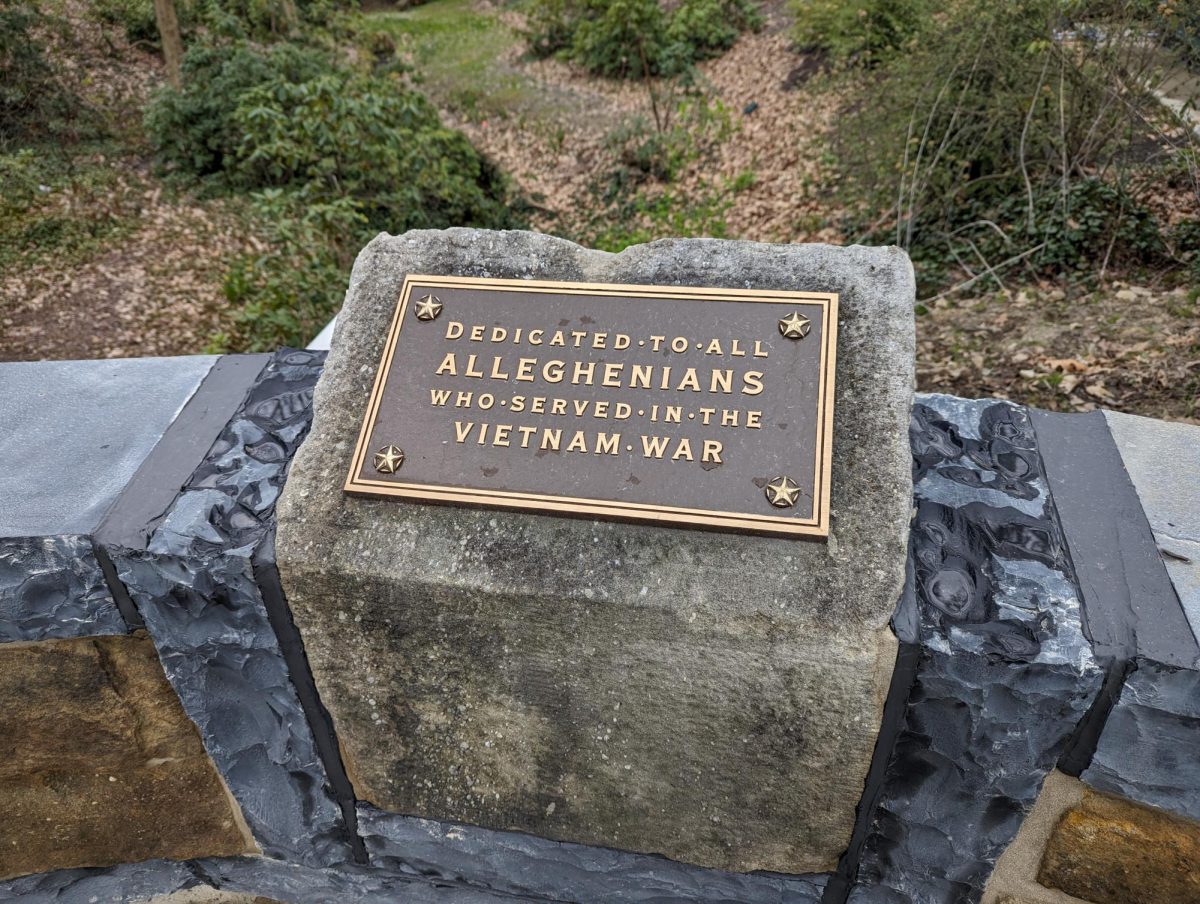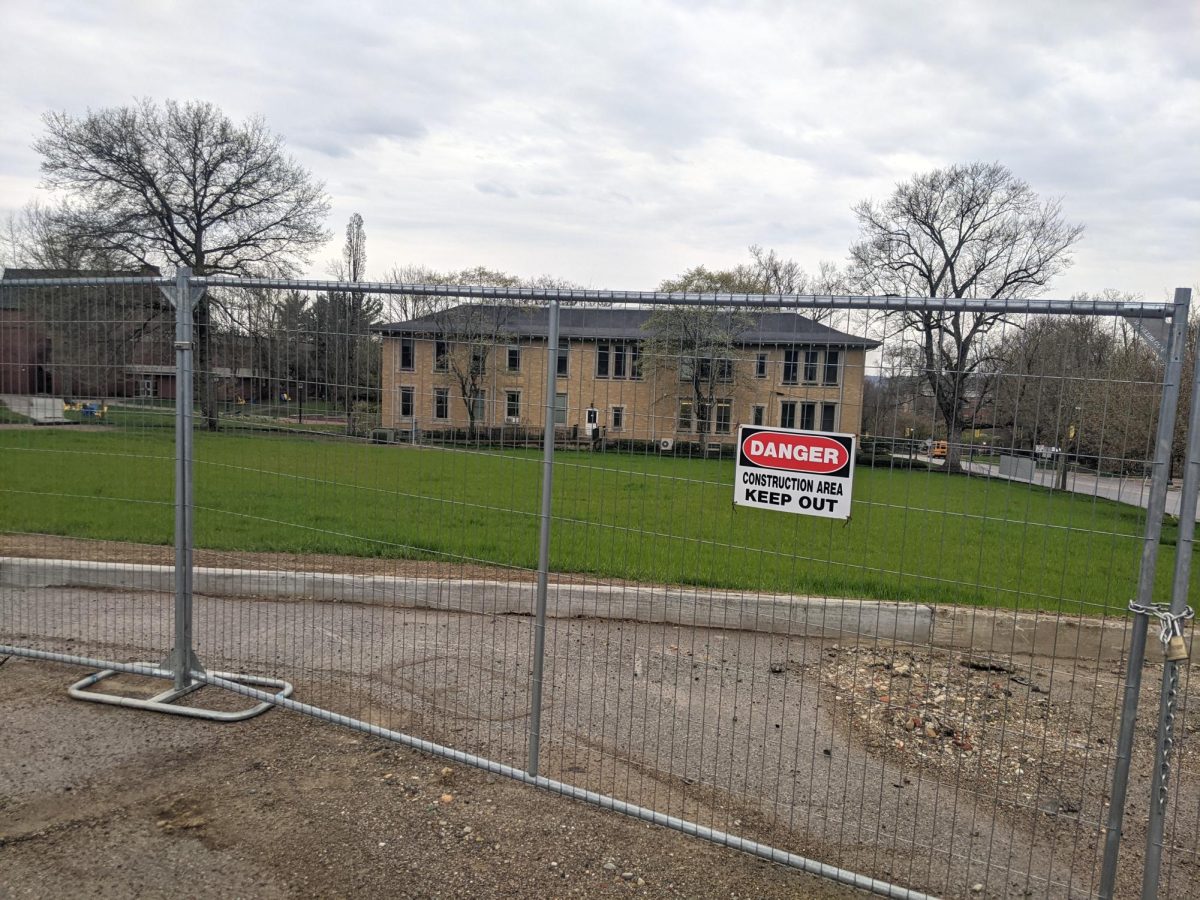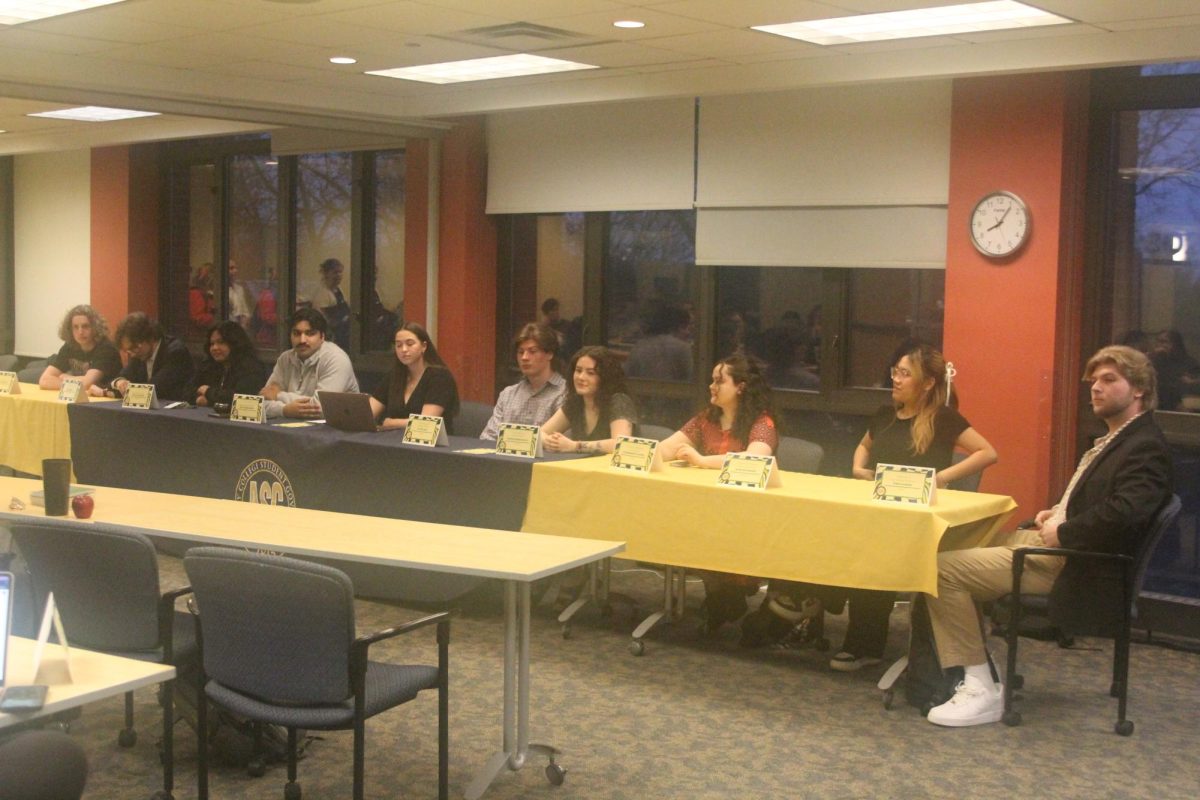The Allegheny Student Government passed a resolution in support of Palestine at their General Assembly Tuesday evening, just over six months after the war began. The resolution calls for a ceasefire and for the college to make a statement acknowledging the pain caused by the Israeli invasion of the Gaza Strip.
Israeli forces have killed more than 33,500 people and injured another 76,049 in the Gaza Strip since early October, according to Gaza’s health agency. Israel has defended its actions, which have been called a genocide by some scholars and human rights advocates, as justified retaliation for an Oct. 7 attack by militant group Hamas that killed just over 1,100 Israelis and took another 200 hostage. Hamas has ruled the Gaza Strip since 2007.
Allegheny community members have demonstrated twice in support of Palestine; in late January, students and faculty gathered on the Gator Quad in a rally to call for a ceasefire, and in mid-February students gathered for a weekend-long vigil to write the names of some of the thousands of children killed in Gaza. The February vigil produced a display that remained in the campus center lobby for several weeks.
Syd Hammerman, ’25, helped organize both events, and advocated for ASG to pass the resolution.
“I know there’s been a lot of criticism of like, ‘Oh, you know, we’re just such a small school, we’re in the middle of nowhere, we can’t really change anything,’” Hammerman said during the constituent comment period. “But when we have motions like this and resolutions that pass that show that we, you know, give a s— about genocide, it kind of means a lot.”
Julia Sonen, ’24, also spoke in support of the resolution.
“Especially at this point, six months in, some of the issue is the silence,” Sonen said. “We need a ceasefire now.”
That last line received a round of knocking from many ASG members, the organization’s method of applause.
No students spoke in opposition to the resolution during the constituent comment period.
The resolution states that ASG “condemns the documented violations of international law committed across Gaza and recognizes that ASG has the responsibility to do so as a representative for all its students, including students who have been personally affected by the occupation.”
Though the resolution does not explicitly call for a ceasefire, it concludes by stating, “ASG advocates for the dignity and safety of individuals in every community, regardless of what crimes its leadership may commit, and that peaceful diplomacy is the only way to achieve this safety and dignity.”
In an email Thursday afternoon, ASG Director of Community Relations Cam Lesher, ’24, wrote that, though not explicitly stated, the resolution is intended as an ASG call for a ceasefire, citing the latter passage as well as the tone and content of the entire document. Lesher co-wrote the resolution with ASG Director of Diversity and Inclusion Kaleialoha Froning, ’25, and Director of the Treasury Lyndsey Robinson, ’24.
The resolution is also intended to influence the college’s position as an institution by calling “on the Allegheny College Administration to publish a statement recognizing the collective grief and loss experienced due to the situation in the West Bank and Gaza.”
However, the statement is not asking for the college to call for a ceasefire, which Lesher said would have been an unattainable goal. Instead, the statement is part of an attempt to focus the conversation on healing.
“I called for what I did because I want to believe that the college will stand against human rights violations and see the importance of recognizing the grief that students might be feeling, as we saw them do with previous campus wide announcement/emails like in 2021 to stand in solidarity with the AAPI community and in 2022 for communities from Buffalo, NY,” Lesher wrote.
ASG’s resolution appears to take aim, in part, at the war-related programming — or lack thereof — provided by the college: One section states that “students have expressed dissatisfaction with the current lack of support and lack of response to the ongoing tragedy occurring in Palestine.”
Lesher clarified that the section refers to “people that are meant to be representing their communities,” including “college administration in addition to the elected officials that are there to represent them (students).”
Sections of the resolution as approved appear to be out of order, with some sections appearing to reference topics that had yet to be introduced in the document.
“I do agree that some of the resolution are not as polished and cohesive as they could be. The difficulty here was that multiple of us worked on this at different stages in writing,” Lesher wrote. “As the situation in Gaza changed, the resolution needed to be updated to reflect that, but those changes made the resulting resolution less clear than before the additions were added.”
For example, in a part of the resolution that appears to criticize the college for differences in the language used to describe different conflicts, the resolution follows up a statement that women and children are the primary victims of the Israeli invasion by stating, “this description of the conflict is interpreted as a rejection to directly name the conflict a tragedy, inhumane, a catastrophe, or otherwise clearly identify it as a traumatic situation claiming thousands of lives.”
The next section states, “the announcements for similar panels introduced to detail the conflict in Ukraine used exceedingly more sympathetic language, such as ‘invasion,’ ‘brutal,’ ‘inhumane’, ‘illegal,’ ‘displacement,’ and ‘war.’”
This is the first part of the resolution that mentions panels of any kind, and appears to be in reference to the college’s only panel on Gaza, held in November.
The November panel is brought up again two paragraphs later, when the resolution states, “The current extent of Allegheny College’s official acknowledgment of the situation in Gaza was present in the form of ‘a discussion of the unfolding conflict involving Hamas and Israel’ described as a space where ‘[t]he panelists will analyze aspects of the conflict from multiple disciplinary lenses with the hope of providing information and opening up a space to have constructive dialogue around this complex conflict.’”
After this section, the resolution pivots to discussing the international response to the conflict.
Lesher said their intent was to call attention to the disparities between the college response to Russia’s invasion of Ukraine and Israel’s invasion of Gaza.
“It was not intended to be a direct criticism of the space that was created, although I was in conversation with students that felt the response and space was not sufficient, it is more about the avoidance of talking about the crisis because acknowledging the pain and loss that people are feeling over a humanitarian crisis should not be something that’s contentious,” Lesher wrote, citing five talks hosted for Ukraine. “The frustration there is the very large difference in the amount of spaces that were created for this conflict in comparison to the previous, and the way that the language used has marked differences.”
In an email Thursday afternoon, college President Ron Cole, ’87, said that he was “continually proud of Allegheny students’ engagement and commitment to advocacy related to global challenges.”
“In regard to the ASG resolution, while I personally recognize the collective grief and loss experienced, I believe that a college campus is a place where we engage and learn how to think, not prescribe what to think,” Cole wrote. “In these moments, I am grateful for our Statement of Community which upholds an inclusive, respectful and safe learning community that promotes the free exchange of ideas. I have seen this exemplified on our campus throughout the year – for example, with student-led activities this spring and the faculty-led panel held in November. The College will continue to support this type of engagement and to provide resources in ways that we are able for members of our community.”
The resolution was formally introduced during “New Business,” towards the end of the meeting, and passed in an 11-0 secret ballot with two abstentions and no debate. Votes were kept private given the sensitive nature of the topic, which Parliamentarian Ankitha Pamula, ’24, said is permissible based on precedent set by a November 2022 ASG vote to voice support for abortion rights.
ASG next meets at 7:30 p.m. on Tuesday, April 16, in room 301/302 of the Henderson Campus Center.







